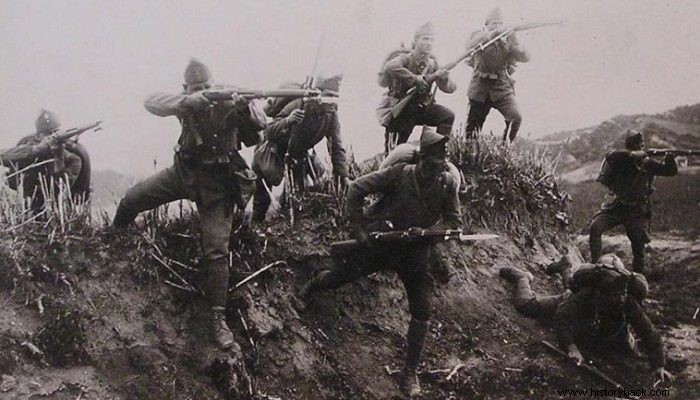
The overwhelming majority of Greek public opinion believes that after the Asia Minor disaster of 1922, the Treaty of Lausanne was signed which has defined the Greek-Turkish borders from 1923 until today. However, as we have mentioned in many articles, from the Asia Minor disaster at the end of August 1922 to the signing of the Treaty of Lausanne on 7/24/1923, many important events took place. On September 13/26, 1922, the revolution of the Army and the Fleet took place under Colonels Nikolaos Plastiras and Stylianos Gonatas and Captain Dimitrios Fokas in Chios and Mytilini.
BY MICHALIS STOUKA
Revolutionary forces sailed to Attica and Piraeus to overthrow Constantine and save Eastern Thrace. The correspondent of the Canadian newspaper "Torondo Star", the later famous Nobel laureate writer Ernest Hemingway, an eyewitness of the events in Asia Minor, wrote:"The revolution of '22 was the rebellion of an army that had been betrayed against those it considered they had betrayed him.
The old Venizelian officers returned and organized the army of the Evros. For the Greece of '22, Thrace was like the battle of Marni, there the game would be played and won. The sight was shocking. The whole country in a war fever. The trains were constantly carrying soldiers. And then the unexpected:the allies gave Eastern Thrace to the Turks and gave the Greek people three days to evacuate it".
On September 15, 1922, 12,000 soldiers of Asia Minor, exhausted but lined up as the British ambassador observed, passed through the main streets of Athens. The revolution that prevailed immediately, had as its objectives the resignation of Constantine, the dissolution of the National Assembly, the formation of a Government "unwavering and inspiring confidence in the Entente" and the defense of Thrace. The Triantafyllakou government resigned and Sotirios Krokidas took over as prime minister.
Plastiras and Gonatas met with the ambassadors of England and France. The two military men behaved very friendly towards the two ambassadors, however they were disappointed when they heard that a final decision had been made to give Eastern Thrace to Turkey, as they believed that with the removal of Constantine the two countries would change their attitude.
The English ambassador told them that too many events have happened since the elections of 1920 and after, so that the change of the regime in Greece would also mean a radical change in the attitude of the Powers towards it. They also emphasized that Greece should not expect help from the Entente. After all this the leaders of the Revolution raised no objection on the Thrace issue. The Revolution appointed Eleftherios Venizelos as Greece's representative abroad. READ THE INTERESTING CONTINUATION AT THE SOURCE
